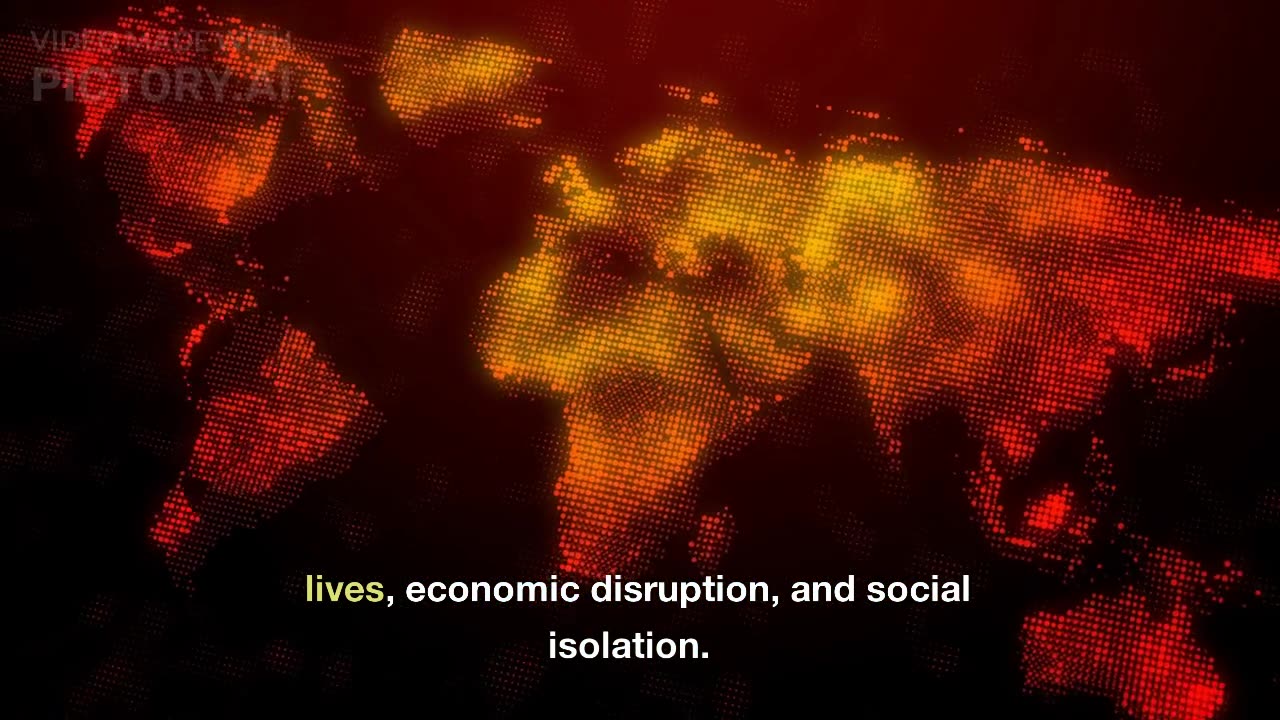Premium Only Content

Understanding COVID-19 and How to Stay Safe
The COVID-19 pandemic has impacted the world in unprecedented ways, causing a significant loss of lives, economic disruption, and social isolation. As the virus continues to spread rapidly across the globe, it's more important than ever to understand what it is, how it spreads, and how to stay safe.
COVID-19, also known as the novel coronavirus, is a highly contagious respiratory illness caused by the SARS-CoV-2 virus. The virus first emerged in Wuhan, China in late 2019 and has since spread to become a global pandemic. As of today, over 400 million cases have been reported worldwide, and over 5 million people have lost their lives to the virus.
The virus spreads through respiratory droplets when an infected person coughs, sneezes, talks, or breathes. It can also spread by touching a surface contaminated with the virus and then touching one's face. The virus can survive on surfaces for hours to days, depending on the type of surface and environmental conditions.
While most people who contract the virus experience mild to moderate symptoms, some develop severe illness that can be life-threatening. The symptoms of COVID-19 can range from fever, cough, and fatigue to more severe respiratory distress, pneumonia, and organ failure. Those at higher risk of developing severe illness include older adults and people with underlying medical conditions such as heart disease, diabetes, and obesity.
Vaccines are one of the best ways to protect against COVID-19. The vaccines have undergone rigorous testing and have been shown to be safe and effective in preventing severe illness, hospitalization, and death. As of today, several vaccines have been authorized for emergency use by regulatory authorities worldwide, and millions of people have already received the vaccine.
Other ways to stay safe include wearing a mask, washing your hands frequently, and practicing social distancing. Masks can help prevent the spread of respiratory droplets and protect others from getting infected. Washing your hands with soap and water for at least 20 seconds can kill the virus on your hands. Social distancing means maintaining at least 6 feet of distance from others, avoiding large gatherings, and staying home when possible.
If you feel sick, stay home and get tested. COVID-19 tests are widely available and can help detect the virus early, which can help prevent further spread. If you test positive for the virus, follow the guidelines of your local health authorities and isolate yourself from others to prevent further spread.
In conclusion, the COVID-19 pandemic has impacted the world in unprecedented ways, and it's crucial to take necessary precautions to protect yourself and others. By getting vaccinated, wearing a mask, washing your hands frequently, and practicing social distancing, you can help slow the spread of the virus and protect yourself and your loved ones. Stay safe and stay healthy.
-
 4:03:48
4:03:48
Alex Zedra
9 hours agoLIVE! Battlefield 6
54.2K2 -
 2:03:15
2:03:15
Inverted World Live
11 hours agoProbe News: 3I Atlas is Spewing Water | Ep. 125
126K27 -
 3:02:07
3:02:07
TimcastIRL
10 hours agoTrump Admin CATCHES Illegal Immigrant POLICE OFFICER, Democrats ARM Illegal In Chicago | Timcast IRL
256K154 -
 4:39:39
4:39:39
SpartakusLIVE
10 hours agoNEW Mode - ZOMBIES || LAST Stream from CREATOR HOUSE
63K7 -
 3:36:25
3:36:25
The Charlie Kirk Show
12 hours agoTHOUGHTCRIME Ep. 101 The New York City Communist Debate? MAGA vs Mamdani? Medal of Freedom Reactions
166K71 -
 2:14:47
2:14:47
Flyover Conservatives
1 day agoSatan’s Agenda vs. God’s Timeline: Witchcraft, Israel, and the Assassination of Charlie Kirk w/ Robin D. Bullock and Amanda Grace | FOC Show
65.3K16 -
 3:14:57
3:14:57
PandaSub2000
5 days agoBye Sweet Carole | MIDNIGHT ADVENTURE CLUB (Original Live Version)
47.2K1 -
 1:22:51
1:22:51
Glenn Greenwald
14 hours agoThe Irony of John Bolton's Classified Docs Indictment; Prominent Dems Now Stutter When Asked About AIPAC; Celebs in Saudi Arabia Controversy: What Does it Reveal? | SYSTEM UPDATE #532
110K65 -
 39:25
39:25
Donald Trump Jr.
13 hours agoFBI's Incredible Crime Crackdown, Plus my Message to ABC!! | TRIGGERED Ep.283
161K123 -
 2:53:38
2:53:38
BigTallRedneck
11 hours agoPGA 2K25 - REDNECK'S WAY OR THE HIGHWAY
21.3K1